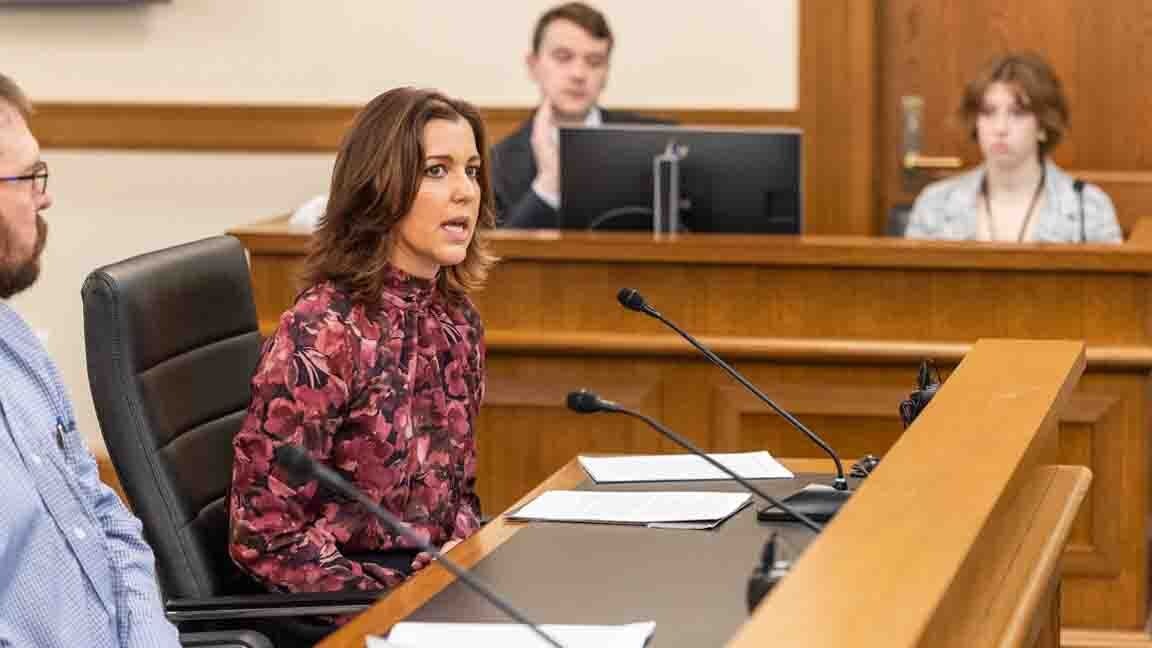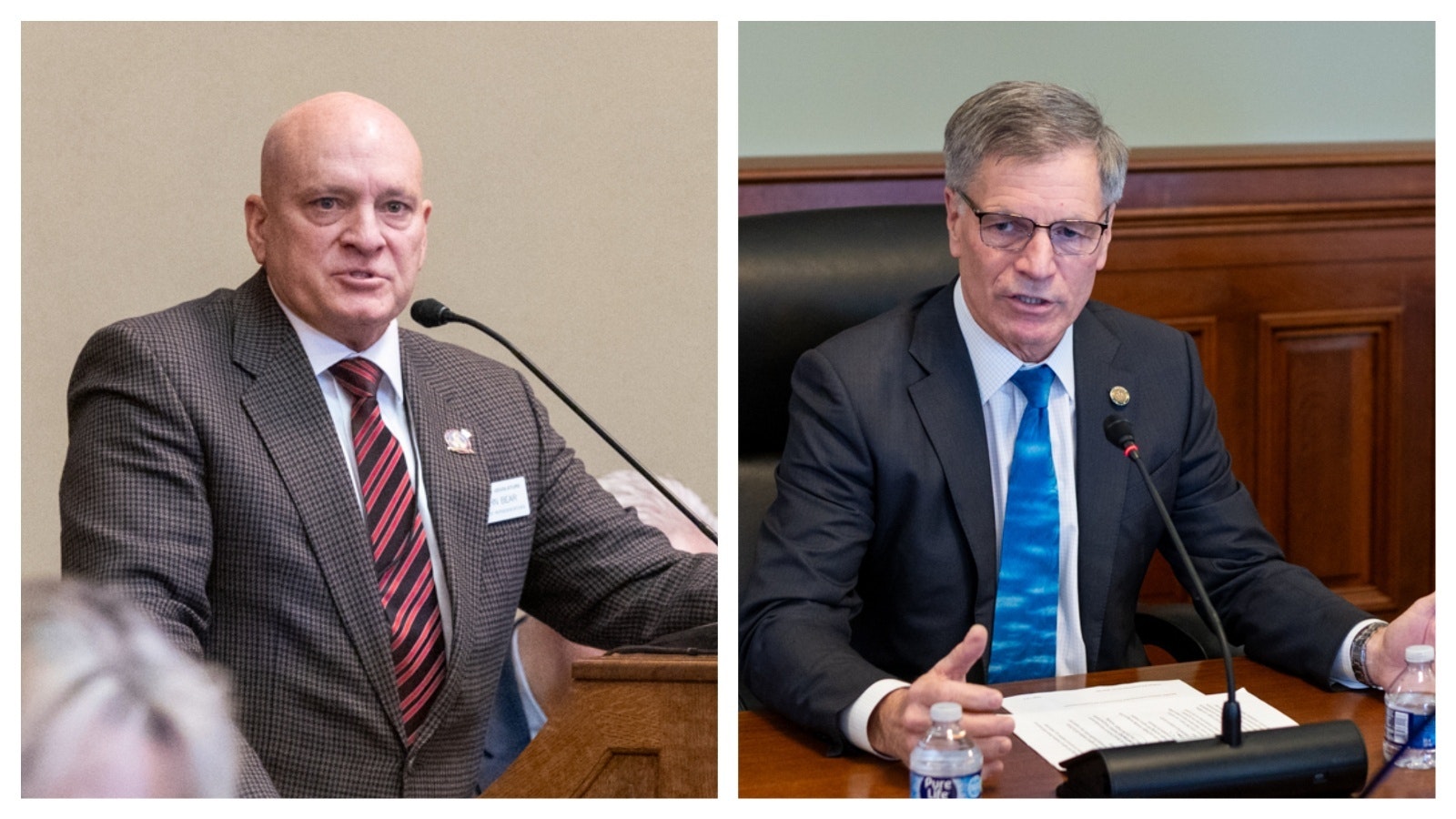In Wyoming, elected officials are generally easier to reach and communicate with compared to other states with larger populations.
But when it comes to filling political vacancies, the general population is more removed from the process.
State Rep. Steve Harshman, R-Casper, is bringing a bill to change that. Harshman’s “Vacancies In Elected Office” would create special elections when there’s a vacancy for governor, U.S. senator, Wyoming Legislature, or any other elected state official.
“I think it ought to be all about the people voting you in,” Harshman said.
The bill would strip away most of the power political parties now have in Wyoming to appoint nominees to fill political vacancies.
“I don’t think it usurps anyone’s power,” Harshman said. “It’s all about power to the people, that’s what we represent.”
Park County GOP Committeeman Vince Vanata disagrees. Vanata said the current process used by the parties allows for a more critical version of the voting electorate weighing in on who will fill a vacancy in office.
“They’re appointed by a majority, it’s a greater standard than what this bill is trying to do,” Vanata said. “We use greater scrutiny, trying to find the best person possible.”
The people involved in party politics tend to be more politically engaged than the average voter, he said. Those members are elected by the general public to precinct committee positions in the primary elections.
What’s The Current Process?
Now the only true special elections held in Wyoming are for a vacancy in the state’s lone U.S. House seat.
In the event a governor vacates office, the secretary of state takes over as governor until the next general election is held. This special election is to be held at the same time as the next general election if the governor leaves more than 60 days before his term is over.
It was through this process that former Gov. Nellie Tayloe Ross was elected in 1924, the first female governor in the nation.
For all other partisan positions, the political party belonging to the vacating elected official gets to choose three nominees to replace him or her. It’s then up to local county commissions or the governor, depending on what level of office the departed lawmaker is at, to choose who will be the replacement.
“It doesn’t go outside of the people elected by the people,” Vanata said.
Special Elections Added
Under Harshman’s bill, any vacancies within six months of the next general election for Senate or U.S. House still wouldn’t be filled through a special election. Vacancies for state Legislature, secretary of state, auditor, treasurer or superintendent of Public Instruction will have a lower bar of three months, and governor would be 60 days.
If a vacancy is declared before those time limits, a special election would be held. Harshman’s bill would not restrict voting in special elections by party affiliation like Wyoming’s current closed primary setup.
“It creates an opportunity to flip the seat,” Vanata said. “It skews the process by which we use now by making it an open election. I question the motives by these representatives who are bringing forward this bill.”
Correspondingly, more notice of these special elections would be given to these positions in the same order. For congressional positions, at least 89 days notice would be given before an election is held. State Legislature and non-gubernatorial statewide officials would get at least 39 days, and the public would be given at least 29 days notice of a vacancy for governor.
Special elections would be held the same way general elections are in Wyoming, requiring the state or local counties to pay for them. Currently, the costs of an appointment process are usually minimal and shouldered by the political parties.
People who want to run in a special election would use a similar process as for normal elections. However, they would be required to be run as a member of the political party they were registered with the day the vacancy was announced. If they weren’t registered with a party, they’d have to run as an independent.
For all other resignations, the normal replacement process would occur, which means the political parties would still be allowed to appoint nominees for county commission vacancies, which would then be selected by county commission members.
State Sen. Jim Anderson, R-Casper, Sen.-elect Gary Crum, R-Laramie, and Rep. J.T. Larson, R-Rock Springs, have co-sponsored the legislation.
Harshman brought a version of this bill in 2022. It failed to be introduced by a single vote during a budget session.
Past Problems
Wyoming’s appointment process has been in place for many years. Harshman said there was a time in the recent past when four of the five top state officials were in office by appointment process, which he doesn’t believe is right.
The appointment process came under scrutiny in 2022 when former state legislator and House Speaker Tom Lubnau filed a lawsuit trying to contest the appointment process that led to the selection of Brian Schroeder to be interim superintendent of Public Instruction.
“The voters should have input, nor political hacks,” Lubnau said.
The lawsuit was rejected in federal court.
In 2023, a lawsuit was filed against the Sheridan County commissioners for the way they conducted their vacancy process, refusing to accept any of the three nominees the Sheridan GOP selected to fill one of their commission seats.
A similar situation happened in Campbell County in 2018.
Although the Republican Party performs most of the vacancy nominations in Wyoming because of its power in the state, Vanata also pointed out that the Democratic Party has done some too, including the appointment for Albany County Sheriff in 2020.
“The Democrats have done it, the Republicans have done it, it’s a tried-and-true process,” Vanata said.
What Do Other States Do?
According to the National Conference of State Legislatures, 25 states fill their legislative vacancies with special elections.
There hasn’t been a state Legislature vacancy in Wyoming since 2021, when former state Rep. Hans Hunt, R-Newcastle, stepped down from his seat.
According to a Legislative Service Office report from 2022, some states give the governor broad powers to select a temporary successor in the Legislature while other states require the governor to select a temporary successor of the same political party as the prior incumbent or a pool of party-nominated candidates. A number of states require the governor’s appointee to be approved by a legislature.
There has been more of a revolving door for the secretary of state position. In 2022, former Secretary of State Ed Buchanan stepped down to become a judge, leading to an appointment process initiated by Gov. Mark Gordon.
Heritage Action for America reports that in 36 states, U.S. Senate vacancies are temporarily filled by gubernatorial appointment. That’s the way it works in Wyoming.
The last vacancy for a Congress seat in Wyoming happened in 2007 when former U.S. Sen. Craig Thomas died. Then-Gov. Dave Freudenthal ended up selecting John Barrasso to fill his seat, who has been in office since.
It was also how Gordon jump-started his political career, appointed by former Gov. Matt Mead to be state treasurer in 2012.
“This is the tried-and-true method,” Vanata said. “It works.”
Harshman also pointed out that incumbency is a huge advantage in any election because of the name recognition someone gets for holding office.
In 14 states, a special election is required within a specified time frame to fill a Senate vacancy. Of those states, eight allow for an interim gubernatorial appointment to serve between the time of the vacancy and the special election.
During the 118th Congress that’s about to complete, 13 special elections were held nationwide.
Leo Wolfson can be reached at leo@cowboystatedaily.com.





